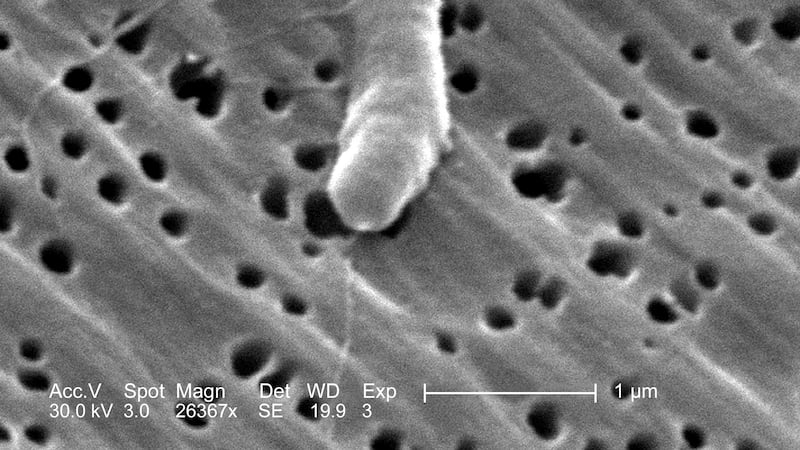SEATTLE — UW Researcher's studying pill may extend your dog's life.
Just about every "dog person" likes to talk about the bond they have with their pup. But for Rose Bigham, it brings her to tears.
That's because she has to take you back to the beginning: November 13, 2006. It's not the day she got Rascal. It's the day she lost her sister.
Ellen was her "second mother," her best friend, her rock. Ellen fought four and a half years against the mass that was growing on her brain. Eventually it got her. And, in a sense it got Rose too. She felt lost and alone and drowning in grief.
Then she got Rascal.
The beautiful black and white pup chewed and slobbered and played. The border collie mix was oblivious to how the earth had shifted beneath Rose. Thank goodness.
"It was a very difficult time in my life. Having him meant I had to leave the house, I had to go for walks. I had to go outside, and I met other people. I even found another community of folks at the dog park. Who knew?" Rose says, as she strokes the 10 lb. puppy that turned into a 70 lb. dog.
Now Rascal is getting a fair amount of grey in his coat. He started slowing down a bit when he turned eight. And Rose knows that big dogs don't tend to make it far beyond his age.
Rascal brought her back to the living. Rose wants to give him back life. And now, she says it's possible because of the "magic" happening in a University of Washington research lab.
Dog lover and biogerontologist Matt Kaeberlein, has been experimenting with rapamycin, a drug commonly given to people receiving organ transplants. It helps prevent organ rejection.
But in mice, they've also found it does something extraordinary. It's improved strength and cardiac function and considerably extended their lives. The "old man" in the mouse group, Ike, is the equivalent of a 140 year-old person.
So Kaeberlein looked at his own German Shepherd Dobby and Keeshond Chloe, and thought, what if... And the Dog Aging Project was born.
Kaeberlein and research partner Daniel Promislow opened up the study to a couple dozen dogs, including Rascal. Rose says after just a few doses of rapamycin, Rascal had more energy, more spunk, "It was like he was in his prime again!" Kaeberlein and Promislow say the results from the study bore out the patterns they discovered in mice.
Now, they want to go big. They're in the middle of applying for National Institute of Health (NIH) grants and UW is collecting private donations so they can sign up thousands of dogs across the country to determine if rapamycin should be available for dog owners like Rose.
"We've been able to increase lifespan by 30, 40, 50 percent by targeting the pathways that affect aging. Fundamentally, there's no reason why that can't be done in dogs," Kaeberlein says.
Rose wants that for Rascal. He's at his usual spot, next to her chair. "LN" is tattooed on her wrist, short for Ellen, the sister she still misses. It glides along Rascal's coat as she strokes his fur and tells their story. "I needed something to keep me going, and he sort of propped me up."
Now it's her turn. She just needs a little magic from UW.
----------------
To get information and sign your dog up for the study:
http://dogagingproject.com/
To financially support the research:
http://depts.washington.edu/givemed/give/?source=doggie
----------------
After the Aurora Bridge crash, people in our area jumped into action, donating hotel rooms, blood, prayers, challenging Seattleites' reputation for being chilly (the "Seattle Freeze"). It inspired me to pass along stories of when we see people in the community coming together, or what I call #SeattleAntifreeze. If you know a story that should be told, let me know. mminglaven@kiro7.com
To read more stories, click on #SeattleAntifreeze.
Cox Media Group








